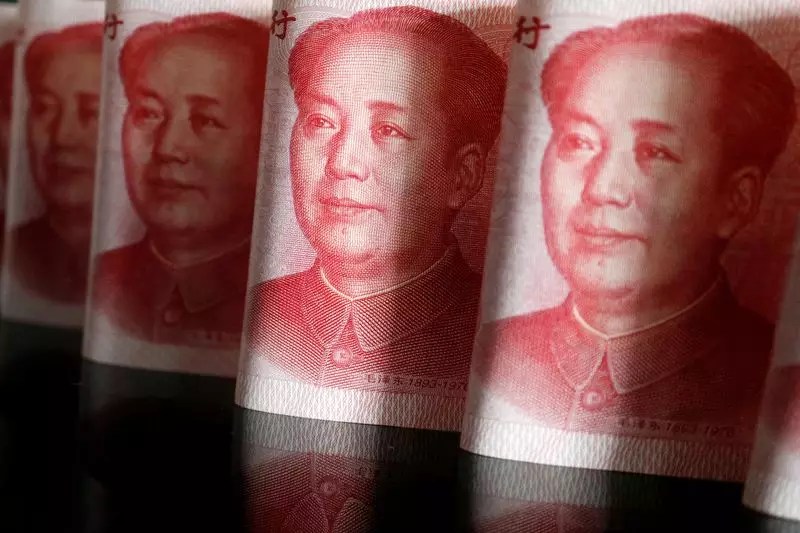In an ambitious attempt to address pressing economic challenges, China is set to introduce a significant fiscal stimulus package, characterized by the issuance of special sovereign bonds estimated at around 2 trillion yuan (approximately $284.43 billion). This initiative comes at a critical moment, as the country grapples with strong deflationary pressures and a slowdown in economic growth post-COVID. The government’s strategy aims to boost consumer spending and tackle mounting local government debts while adapting to a changing economic landscape.
Special sovereign bonds are unique financial instruments designed for specific government purposes, and in this context, China aims to leverage them to rejuvenate domestic consumption. The Ministry of Finance (MOF) is expected to release 1 trillion yuan in special debt dedicated to stimulating consumer activity. This financial influx is essential for revitalizing sectors that have seen diminished activity as citizens navigate the uncertainties of a post-pandemic world. Scholars and analysts are closely monitoring these developments, recognizing the immediate need for enhanced consumption to counter the stagnating economic metrics.
The innovative allocation of proceeds from these bonds will support various initiatives, including increased subsidies for the upgrading and replacement of consumer goods. Additionally, the MOF plans to offer financial assistance to families with two or more children by providing a monthly allowance of approximately 800 yuan ($114) for each additional child, thereby incentivizing family growth and consumer spending.
Another substantial component of the bond issuance strategy is to allocate another 1 trillion yuan towards addressing the intricate debt issues faced by local governments. This effort is essential, given that local authorities are currently burdened with a staggering collective debt that amounts to $13 trillion. As investments continue to yield diminishing returns, the fiscal responsibility for local governments has become increasingly unmanageable. By introducing a focused financial strategy, the central government aims to stabilise local economies while improving overall fiscal health.
Despite the financial support that has dominated China’s fiscal policies, the reality remains that household spending constitutes less than 40% of the nation’s GDP. This is notably lower than the global average, which heightens concerns about the sustainability of economic growth and consumer confidence.
Chinese leaders are striving to achieve a growth target of around 5% for 2024, with particular attention to reviving the real estate market that has faced notable declines in recent years. The Politburo has emphasized the importance of utilizing ultra-long special sovereign bonds to facilitate government investments and ensure necessary fiscal expenditures are met. The signs of a more aggressive fiscal policy are clear, with critics highlighting the urgent need for measures that can stimulate consumer confidence.
The recent monetary policy adjustments made by the People’s Bank of China have also signaled its commitment to revitalizing economic activity. Initiatives such as liquidity infusion and reduced borrowing costs are designed to foster an environment conducive to investment and growth. This monetary strategy, coupled with an anticipated fiscal package, indicates a comprehensive approach that aims to address multiple layers of economic challenges.
In parallel with these measures, there is a concerted effort to enhance financial support specifically for small and medium-sized enterprises (SMEs). Given their vital role in the economy, the government plans to implement phased employment subsidies and tax relief initiatives to alleviate the operational burdens on these businesses. Engaging with SMEs is crucial, as they often play a pivotal role in job creation and innovation within the economy.
Economists from Morgan Stanley have aptly noted that while this is not an all-out commitment to economic support, it reflects a serious acknowledgement by Beijing of the ongoing deflationary risks. The proactive exploration of fiscal and monetary options underscores the government’s commitment to stabilizing and reviving the economy.
While the intentions behind China’s special sovereign bonds are grounded in a desire to alleviate economic woes, analysts remain cautiously optimistic. As the country prepares to unveil these measures, the real test will be how effectively they can restore consumer confidence and spur spending in a challenging market environment. Moreover, as reports surface about an additional capital injection of up to 1 trillion yuan into major state banks, it becomes increasingly apparent that Chinese policymakers are committed to taking multifaceted approaches in navigating the complexities of their economy.
The issuance of special sovereign bonds forms the cornerstone of China’s latest fiscal stimulus measures, promising a multifaceted approach to contemporary economic dilemmas and aiming to stabilize the environment for growth and sustainability.


Leave a Reply